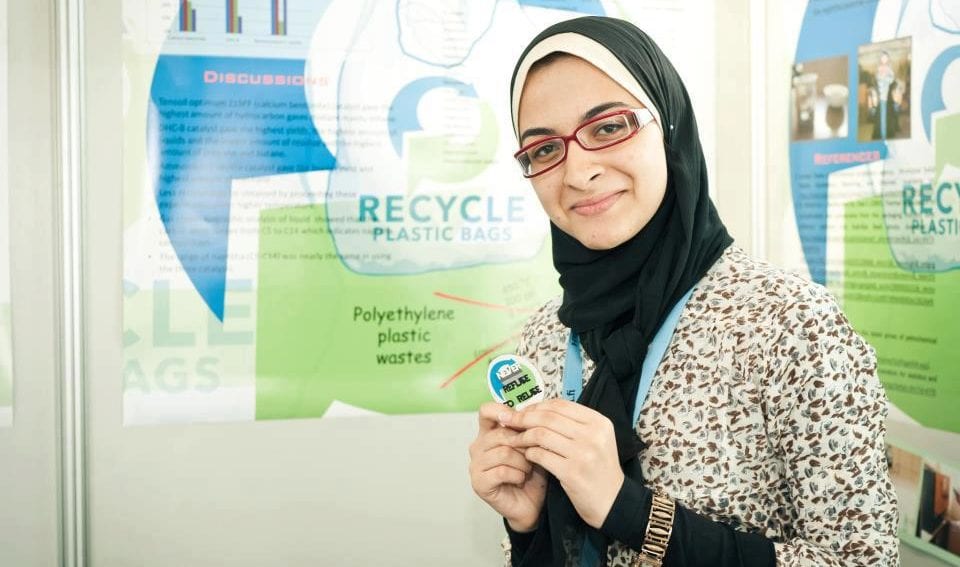By: Rasha Dewedar
Send to a friend
The details you provide on this page will not be used to send unsolicited email, and will not be sold to a 3rd party. See privacy policy.
[CAIRO] A method for generating biofuel by breaking down plastics using a low-cost catalyst will be developed further in the United Kingdom next month (16 July).
The process was developed by a sixteen-year-old Egyptian student, Azza Abdel Hamid Faiad, from the Zahran Language School in Alexandria, Egypt.
Faiad won the European Fusion Development Agreement award at the 23rd European Union Contest for Young Scientists — involving 130 competitors from 37 countries — held in Finland last year (23–28 September).
Her prize is a week-long placement at the Joint European Torus (JET) facility — the focal point of the European fusion research programme — at the UK-based Culham Centre for Fusion Energy, UK, where Faiad will present her project and receive help with its development.
Faiad proposes exploiting Egypt's high plastic consumption, which is estimated to be around one million tonnes per year.
"Plastic waste is a real problem in Egypt — and in most developing countries — and this project is simply converting the problem into a solution", said Nourwanda Sorour, a student at Alexandria University, Egypt, and one of Faiad's mentors.
Faiad has succeeded in converting plastic into fuel feedstocks — the bulk raw material for producing biofuel — by identifying a catalyst, calcium bentonite, for breaking down the plastic waste that is low in cost. When the waste is broken down, it produces gaseous products including methane, propane and ethane, which are then converted into ethanol for use as biofuel.
Breaking down plastic and polymers by heating them to higher temperatures is not a new idea, but the type of catalyst used is what gives the idea its strength, Faiad said.
"The project can be safely implemented, as it doesn't emit any toxic gases, as long as its implementation abides by the safety measures applied for similar projects," Sorour said.
Mamdouh Elmelawy, from the Egyptian Petroleum Research Institute, said that the project is greatly needed in most countries to help substitute fossil fuels.
"[The project] is a practical one that can be implemented on a larger scale either by the government in Egypt or by the private sector," he said.
Faiad said: "I will pursue my efforts to get my project patented this year through the Egyptian Patent Office and also to see the idea become a tangible project on the ground".














